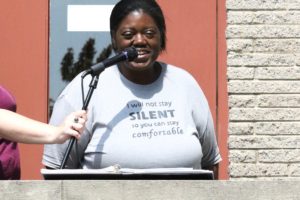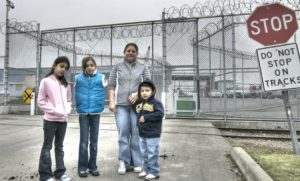
A family outside the GEO Group-run Northwest Detention Center in Washington State. Photo by Seattle Globalist/Flickr
“I don’t understand the news about what’s happening at the border.”
“I am saddened and sickened by all of this.”
“I am ready to help!”
Abundant thanks to the many community members who have reached out to the Catherine McAuley Center (CMC) over the last week out of concern for our neighbors affected by the current border policy.
At CMC, we believe in the dignity of every individual and that our future depends on inclusive communities that welcome, respect, and support a diversity of individuals and ideas. Like our partners at the U.S. Committee for Refugees and Immigrants (USCRI), we stand for a border policy that protects children and respects the rights of persons seeking asylum.
Who are asylum seekers?
So are the asylum seekers in the news the same people CMC is serving? We know a lot of Eastern Iowans are asking this as they eagerly look for ways to be part of the solution.
To answer that question, it’s necessary to understand the difference between immigrants, refugees, and asylum seekers first. This video explains it well:
Put simply:
- Immigrants have moved to another country by choice, often for economic reasons.
- Refugees have fled persecution in their home country and apply for refugee status overseas. They complete a rigorous vetting process before arriving in the U.S., where a resettlement agency like CMC provides comprehensive support for their first 90 days here.
- Asylum seekers are also fleeing persecution in their home country, but arrive in the U.S. or at the border before applying for protection. International law grants them the right to apply for asylum in another country.
- A series of short videos from UNHCR further describes the journeys of these migrant groups as they make their way to their new homes.
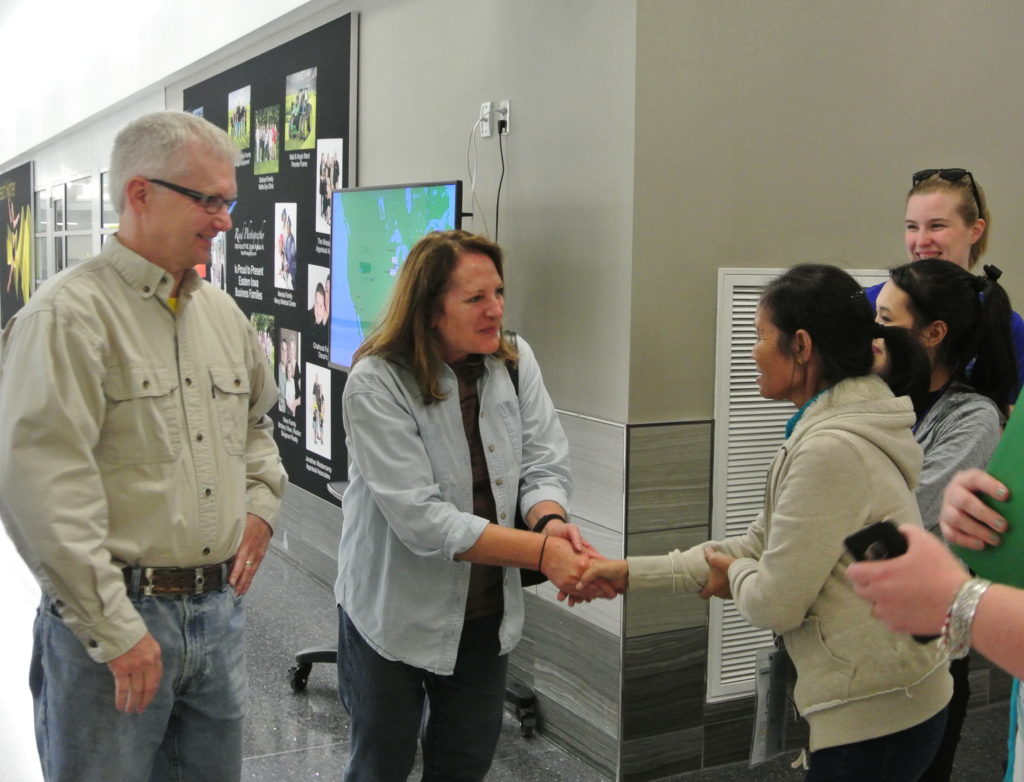
CMC volunteers welcome a member of a refugee family at the airport
CMC encounters people from each of these groups through our Adult Basic Education, Resource Navigation, and Employment Support services, all of whom are coming to CMC for opportunities to build skills, find stability, and make meaningful connections with the community. Only people with refugee status (those who applied for protection while overseas) are eligible for CMC’s resettlement program, which is conducted according to strict specifications from the U.S. State Department.
Though the people seeking Catherine McAuley Center services may not be the exact faces you see on the news coverage of the detention facilities along the border, many of the people we serve also came to the United States in search of safety or greater opportunities for their families. Each gesture of welcome toward them is creating an inclusive, engaged community that will continue to advocate for our neighbors at home and abroad.
Supporting a welcoming community
To support a welcoming community here in Eastern Iowa, you can:
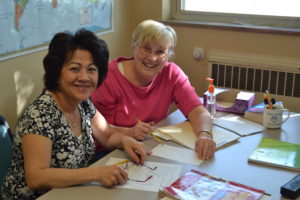 Volunteer
Volunteer
Become a tutor for one of the 100+ adult learners on our waiting list or share your time and skills with CMC in another way.
Give
We appreciate donations of any of the items on our wishlist that stock our food and hygiene pantry or are used to set up a newly-arrived refugee family’s home. You can even host a food or supply drive with your place of worship, employer, or other social group!
We also rely on donations from individuals to support our mission of offering hope and opportunity to our neighbors. Monetary gifts allow us to continue pursuing new opportunities to better serve our neighbors!
Spread the word
Follow us on Facebook or Twitter for the latest updates, and let your friends know how they can get involved! And as you learn more about the issues you care about like border policy, consider sharing your concerns with your federal elected officials.
Thanks for working together with us for an inclusive community!

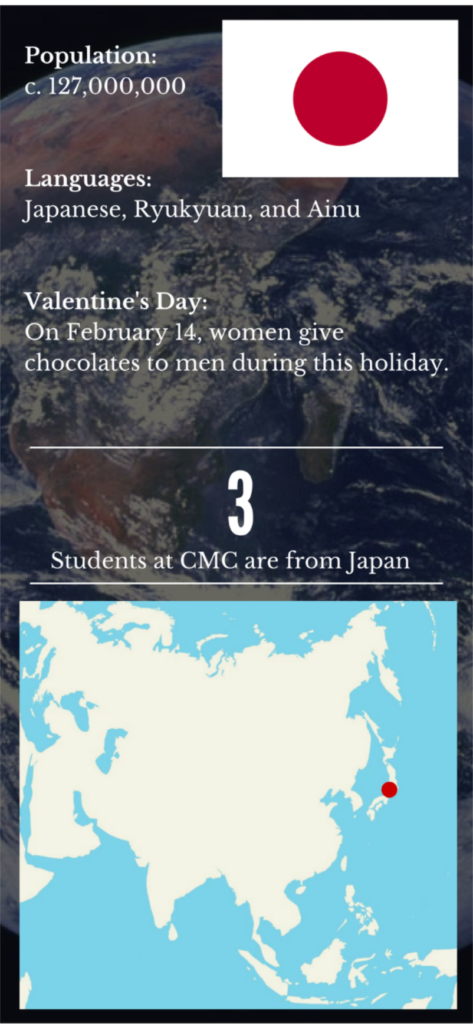 We’re glad you’re a student at CMC, Ai! Thanks for telling us about your native country.
We’re glad you’re a student at CMC, Ai! Thanks for telling us about your native country. March 2018 marked the 7-year anniversary of the start of the Syrian Civil War, now one of the largest humanitarian crises in the world. Altogether, 43.2% of Syria’s 22 million people have unwillingly left home. Percentage wise, this would be as if 1.36 million Iowans were forced to flee the state in less than a decade.
March 2018 marked the 7-year anniversary of the start of the Syrian Civil War, now one of the largest humanitarian crises in the world. Altogether, 43.2% of Syria’s 22 million people have unwillingly left home. Percentage wise, this would be as if 1.36 million Iowans were forced to flee the state in less than a decade.
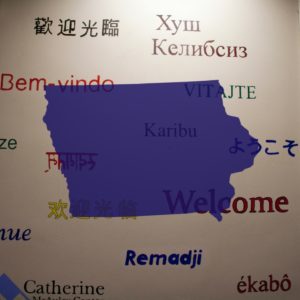 Caleb Gates, Refugee Case Manager & Advocacy Specialist
Caleb Gates, Refugee Case Manager & Advocacy Specialist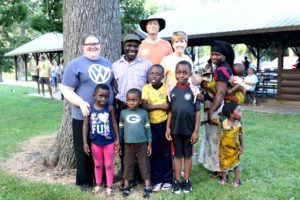
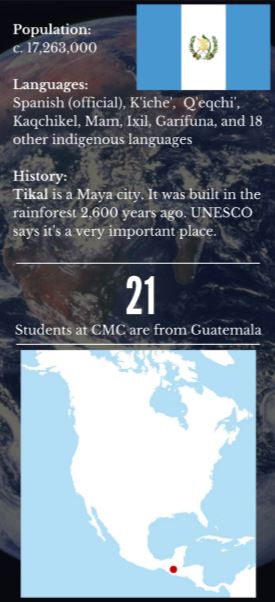 We’re glad you’re a student at CMC, Silvia! Thanks for telling us about your native country.
We’re glad you’re a student at CMC, Silvia! Thanks for telling us about your native country. So often here at the Center we get caught up in the schedule and the hectic rush of tutors and students. We sometimes forget to give a heartfelt “Hello, how are you?” or we think we’ll check in next time/next week. This past week we lost a dear member of our extended family of learners and educators.
So often here at the Center we get caught up in the schedule and the hectic rush of tutors and students. We sometimes forget to give a heartfelt “Hello, how are you?” or we think we’ll check in next time/next week. This past week we lost a dear member of our extended family of learners and educators.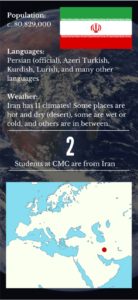
 Us too.
Us too.